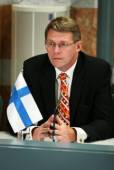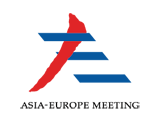On the 1st of July 2006 Finland took over the Presidency of the European Council. It is the second time that Finland holds the Presidency, after they did so in the first half of 1999. Back then the situation in Europe and indeed for Finland was completely different. Only four years after it joined the EU together with Sweden and Austria, Finland chaired the so called EU-15 in a pre-enlargement, pre-Euro, pre-9/11 Europe.
Today’s Europe is a different story. Finland will have to do with an EU-25, in which the decision-making process is done in accordance with the provisions of the Nice Treaty, possibly the only Treaty in the EU generally recognized as a bad compromise. Internally it faces a continuing of the so called reflection period to which the EU constrained itself after the stalemate in the ratification process of the Constitutional Treaty, the transparency issues and delivery problems, the unfulfilled Lisbon agenda, the uninspired Neighbourhood policy, the inherited Cypriot problem, the search for a balance between widening and deepening of the Union, to name but a few. However, the long list of open issues and tasks to be dealt with by the Finns doesn’t stop here: rising energy concerns, continuing terrorist threats, escalation of the Israeli-Palestinian conflict, worrying developments regarding Iran, security concerns in Afghanistan and Iraq, the war- and poverty-torn African continent, intensifying immigration waves and many more. The later are mainly external issues, which influence the daily business of the Europeans, who cannot simply press the pause button on them, like they are trying to do with their institutional reform. No wonder then the Finns have chosen the motto of being realists for their Presidency.
Priorities of the Finnish Presidency
So, what is the agenda with which the Finns decided to tackle the numerous and distinctive issues the EU is facing:
The Future of the EU, Enlargement, Better Regulation, Transparency, Competitiveness, Energy, Education, Environment as well as CFSP and ESDP issues (Western Balkans, Russia, UN reform process) are the buzz words that can be taken from the official presentation of the Agenda for Finland’s Presidency of the EU.

Vanhanen’s realism refers first and foremost to the future of the EU Constitutional Treaty. The recent Brussels EU-summit already decided to prolong the reflection period well into the second half of 2008. Finland is yet to ratify the Constitutional Treaty that was overwhelmingly rejected by the French and the Dutch a year ago. However, the Finns said they would conclude their ratification in the first weeks of their Presidency and thus give a life-sign to the Constitution that might not be dead but is definitely in a deep sleep. The Finns take up the slogan of moving the EU from the phase of reflection to a “Europe of results”. The key words in this respect are “transparency” and “efficiency”. With the opening up of a part of the Council meetings the Finnish Presidency wants to implement the decision taken during the Austrian Presidency of trying to make the EU decision-making process more transparent. They certainly have the leverage to do so, given their exemplary domestic system.
Enlargement
The Finnish Government wants to clarify the prospects of the Enlargement process in the near and distant future. Thus they plan to achieve a “new consensus on Enlargement” at the December summit, without giving further explanation on what exactly this consensus would consist of. Understandably since the voices of putting a stop to Enlargement, are getting stronger in several Member States, most importantly in France and the Netherlands. The originally planned enlargement to include Bulgaria and Romania in January 2007 looks more and more unlikely. The final evaluation by the Commission is not due before October 2006 and there are still plenty of task to be completed by the two membership-aspiring states. The message however stays: the door is open, as long as Bulgaria and Romania stick to their part of the bargain and manage to fully implement the acquis and conclude the necessary reforms. The perspective membership of Croatia and Turkey will also face harsh scrutiny in the next six months. Both applicant countries will need to work hard and fully cooperate with Brussels unless they want to face suspension of their talks. This is especially true for Turkey and its ongoing refusal to open its ports and airport to Cypriot ships and airplanes. The most important for any applicant country is to do its part, so as not to give the EU any excuses of halting the started integration process. In this respect the countries of the Western Balkans are hoping for a confirmation that they do belong to Europe and will be able to join the EU club one fine day. This proclaimed commitment from the EU needs to be reiterated; otherwise the reformist governments might face crucial losses to nationalist politicians, which would push the whole region back on the brink of instability and possibly further escalation of the lurking conflicts.
External action
During its Presidency Finland wants to further develop EU external relations using existing structures and instruments within the framework provided by the existing Treaties. This initiative can only be welcomed yet its successful implementation remains to be seen, given the reluctance of Member States to give away more sovereignty in the CFSP area to the EU level. Relations between the EU and Russia will feature prominently during Finland’s Presidency. An EU-Russia summit meeting will be held in Helsinki on 24 November 2006 and Finland will seek to push forward with implementation of the roadmaps for the “common spaces” agreed on by the EU and Russia. With Russia presiding over the G8 group this year and taking into account Russia’s new confidence and wish to regain its status as a world (super)power, mainly through its energy resources, it remains to be seen what will be the outcome of this cooperation. Given the vast differences between Member States when it comes to dealing with Putin’s Russia, the Finns might just be the proper consensus builder to move things into the right direction and possibly achieve a common stance towards Russia. Another objective is to implement the European Neighbourhood Policy (ENP) action plans in a coherent way, so that they complement each other, and to develop the regional dimension. However, this will be quite difficult given the indirect implications of ENP for Russia. We also have to take into account the fact that the German Government is preparing a revamp of the whole Neighbourhood Policy for their Presidency in six months time.

On the global scale an important meeting will take place, namely the sixth ASEM summit. The Summit will bring together the leaders of 38 Asian and European countries and the European Commission. ASEM 6 will provide them with a forum for open, face-to-face discussions and genuine dialogue under the overarching theme: Global Challenges - Joint Responses. Marking a special milestone in Asia-Europe relations as it celebrates the 10th anniversary of the ASEM cooperation process is one thing. But moving on to further develop and strengthen the cooperation not only in economic terms but also in the framework of a dialogue of civilizations and the need to protect human rights across the globe is another. The tenth anniversary is indeed the perfect time to consider how the countries of Asia and Europe can more effectively respond to the challenges of globalisation - let’s hope the discussions also deliver results and not only great speeches.
Economic and social issues
Finland wants to develop the EU’s energy policy as well as promote the content and creative industries as key resources for creating economic growth, employment and competitiveness in Europe. Finland is one of the few EU countries that gives more than 3% of its GDP to research and development and thus fulfils the criteria of the Lisbon strategy. The Government is proud of its successful transformation from an industrial to post-industrial (services-based) and information society. Its education policy is regarded as one of the best in the world and Finland is also a pioneer in several social policy areas such as gender balance, respect for cultural diversity, environment protection and social aspects of globalisation. However, the newest proposal of increasing alcohol taxation across the EU might not find massive approval among the citizens of the Union. Though it seems that with such initiatives the Finns are putting an overprotecting EU super state on the agenda.
Conclusion
Nobody expects spectacular results from this Presidency and this has nothing to do with the Finns but rather with the fact that important EU decisions are being postponed. The best example is the Constitutional Treaty where all eyes are focused and hopes laid upon the German Presidency in the first half of 2007. Therefore Finland’s role is to administrate the formed vacuum and take care of the daily business. And the proclaimed realism will do them no harm whatsoever. Personally, I believe the Finns can put their knowledge and experience to good use in various areas, such as relations with Russia, educational and environmental issues, improvement of the competitiveness of EU economy and tackling the situation in the Western Balkans, as long as other Member States play along.
Maybe the cold breeze from the North is exactly what the overheated EU needs right now. Onnea matkaan Suomi! (Good luck Finland)


1. On 16 July 2006 at 22:57, by Piia Pappinen, EB member of JEF-Europe Replying to: Finland takes over the EU presidency
Replying to: Finland takes over the EU presidency
“A more critical approach towards the Finnish presidency”
In the following I’d like to comment and make some notions on Pete’s positive evaluation on the Finnish presidency.
Contrary to the Austrian approach, Finland explicitly does not want to talk about the borders of Europe.
Finnish Presidency’s opinion is that EU is prepared for Turkey’s accession in 10-15 yrs. They want to pay pecial attention to Moldova and neighbouring countries, because of the geopolitical importance on energy resources’ provision and energy transit.
Opening the legislative council is only a TEMPORARY 6 months’ experiment, assessment of results and effects is done afterwards. PM Vanhanen said that “all the Council meetings are definitely not opened, leaders have to have chance to confidential discussion..”. So the Finnish PM is no way reformist on this issue.
We as JEF should remember to be a bit more critical about this, why I also refer to our PR before G8 about “Putin-Hugging”: Finland as the head of EU now, having long history with the sometimes”difficult" Eastern neighbour, experience on political culture of the country and blessed with the geopolitical proximity, should pay more attention to criticising the state of democracy in Russia. Unfortunately, the “Finlandisierung” is still very prominent among the political leaders in Finland, and this prevents them from saying much against mighty Russia.
The Finnish Foreign Minister Tuomioja (Social Democratic Party) was under attack in European Parliament, from the side of many MEP’s, Swedish MEP Cecilia Malmström (ALDE) among them. They rightly complained that “Finland as country using EU’s common voice, did not include single word in their agenda about democratic deficit in Russia”.
It is clear that the transit point for Fin-Pre over the eastern EU-border to Russia is energy. High political dialogue on it but no legislative acts will be ahead during the next fall. The aim is to have action plan for the 1st half of 2007 on energy, and set up a permanent, high-level talk shop with Russia on energy affairs. Enhancing EU-energy internal market functioning is also on the agenda as a one of the most difficult topics, because of protectionist trade policies of French and the other bad guys. Obviously it the biggest challenge is to overcome the EU-internal energy disputes before being able to counterweight Russia on a territory where it plays rough game.
Fin-Pre also states that reaching final agreement in WTO is an aim - which apparently is mere wishful thinking, at least assessed based on to latest developments.
After EU-US Transatlantic “Gipfeltreffen” Fin-Pre reached agreement to start “High Level Dialogue” this fall with US about climate issues in the context of energy questions (meeting will be in Helsinki): All this on the condition that the word “Kyoto” will not be mentioned, funnily enough. Talks about climate in UN-framework will also be started.
To Western Balkans’ issues Finland is going to be well-engaged: SAA -mandates are going to be accepted for Montenegro and Serbia ASAP, and an important priority will be to make progress in easing VISA restrictions from WEB. This is where JEFfers could push also push a bit to make faster progress!
So the Fin-Pre agenda is favouring high-level, intergovernmental and external issues, obviously because Finland wants to benefit from their historical - in good as well as in bad - high-profile status in mediating Russia, EU and US interests. Finland has good relations (for such an unimportant and distant country) towards all of them. Kosovo talks in 1999 headed by former president Ahtisaari proved that the reputation doesn’t go without real base. In the talks Mr. Ahtisaari juggled quite successfully between the interests of Russia, US and China during the crisis, and is doing the same at the moment. Outcome is awaited during the Finnish presidency, to draw a cross on one item in the “to-do-list”.
Not to forget the neighbouring countries outside in the cold, a word about Switzerland: there might be interesting developments in front with Helvetians and EU on the course of the fall. If the Swiss referendum in September (whether or not to give away 1 billion Swiss francs to new EU-member states) is going to be rejected by people- stones in the Swiss bilateral way might really loom ahead. Commission is also being tough against Switzerland on some of their cantonal taxation rules, which are mildly expressed, very beneficial for foreign businesses.
If Swiss people indeed say no to furthering the “cohesion” between new and old member states on their expense, and Commission and cantons can not find a solution to the tax-fight, country’s plan about getting integrated to Schengen/Dublin-system in time might be blocked by irritated new member states.
This might also mean serious reconsideration of the huge web of agreements and treaties, in other words to danger their beneficial “opt-ins”. Maybe Finland gets the challenging task to negotiate between EU and Switzerland, and make use its’ reputation of a neutral mediator. If Finland succeeds in communicating with Swiss politicians, EU might be some decades closer to getting a new Member State from the geographical centre of Europe.
To conclude, Finnish Presidency could have concentrated on lower level work about EU-citizens rights as they are working and moving around Europe, more democracy and more stress on the Constitutional stalemate. The ratification of the Constitutional Treaty has been promised to be concluded “during 2006”, and obviously no moves have been made on that sphere during the first weeks of Presidency. Wait and see, is the attitude of “slower than the European average”- Finns also in this regard..
A place for the last critique is here: where Finland definitely could have acted in a constructive way, is the remit of “social security combined with high competitiveness and innovations”. It is an unchallenged truth that Finland is an exemplary country in the area of education, social security and readiness for reform, without compromising the well-being of middle classes and the worst off.
As the last Eurobarometer shows, getting the social model issues on EU-agenda is a great concern to the majority of Europeans. Which of the presidencies is innovative and reformist enough to take this on the agenda?
Follow the comments: |
|
